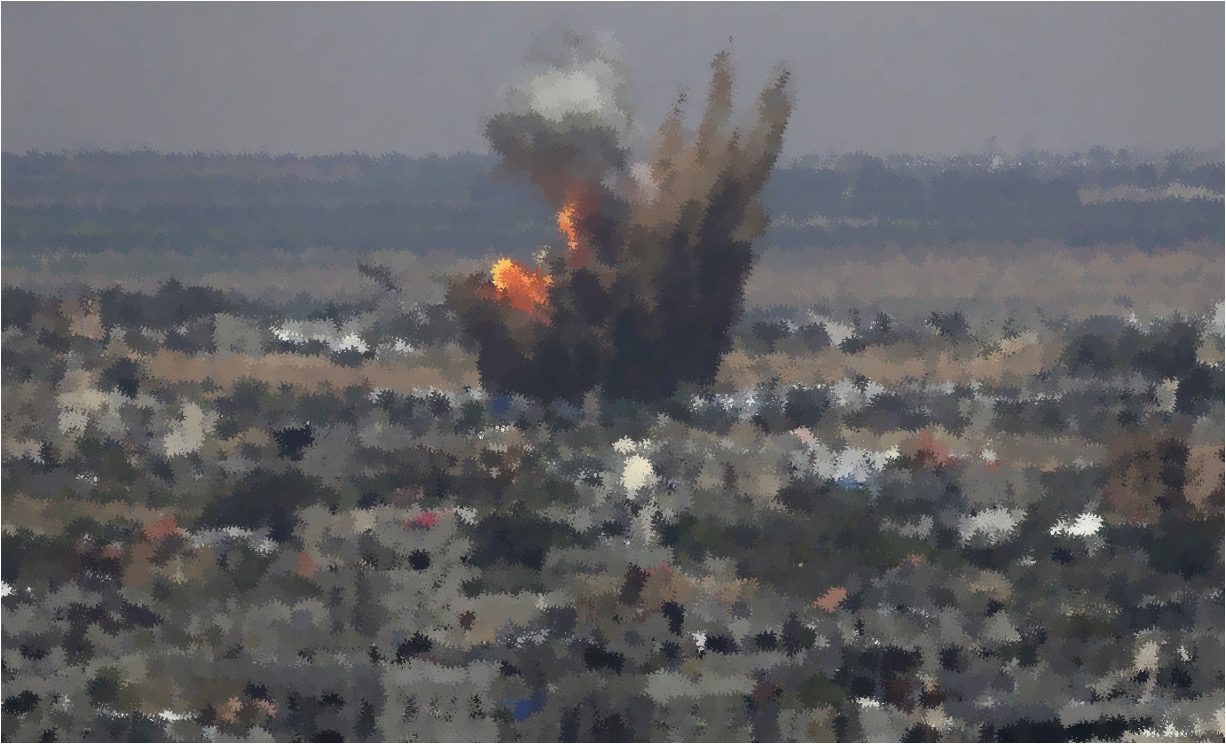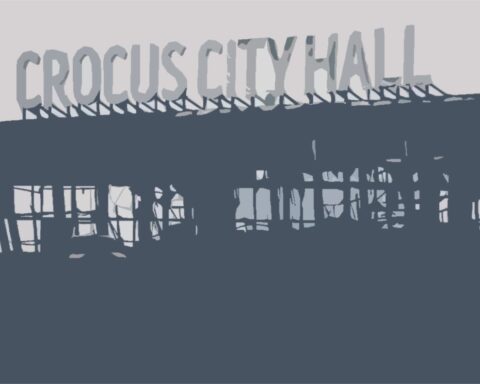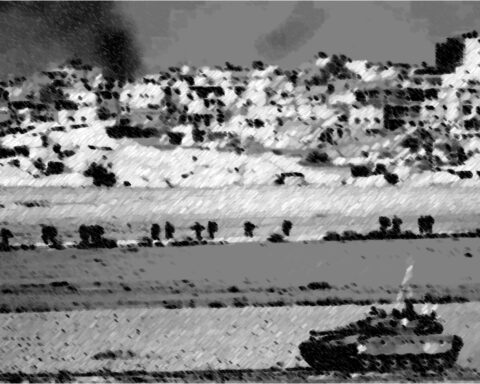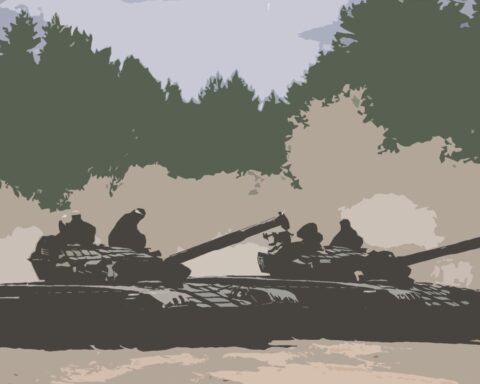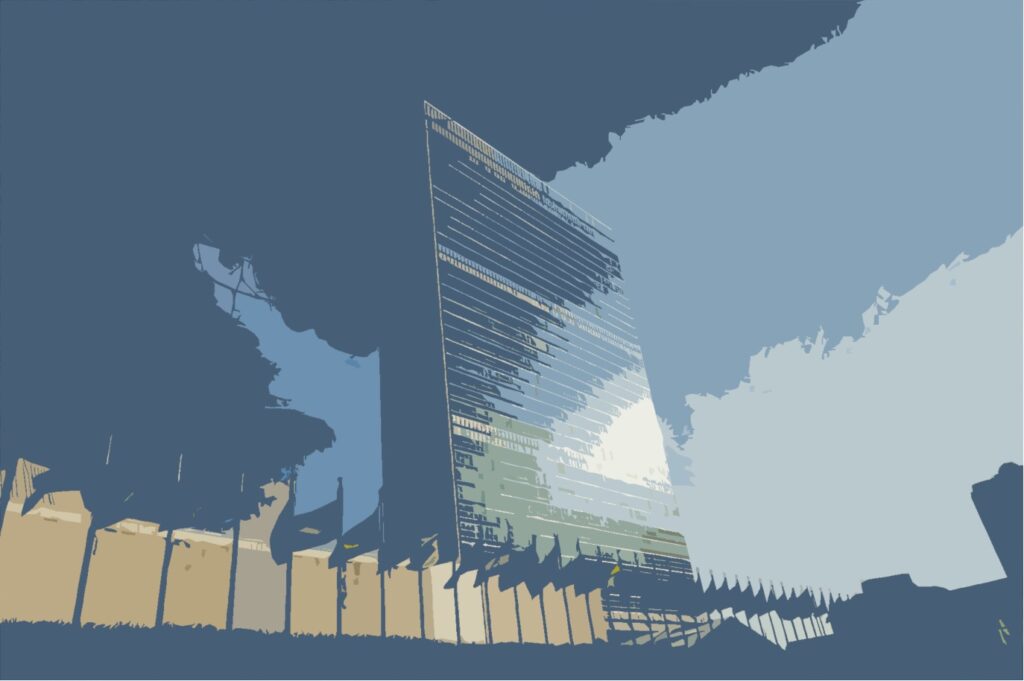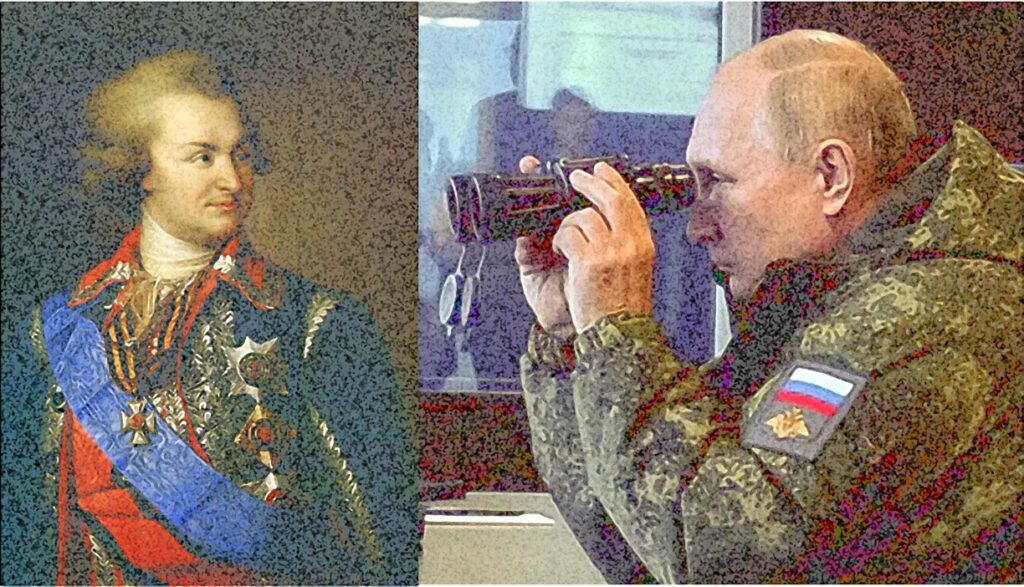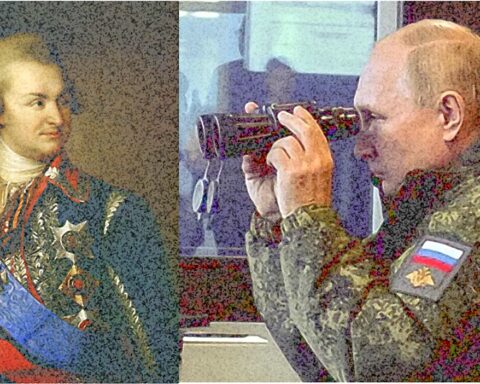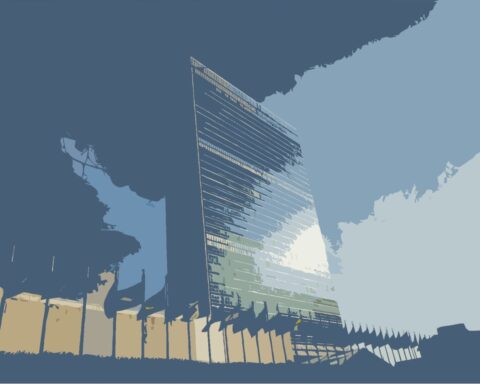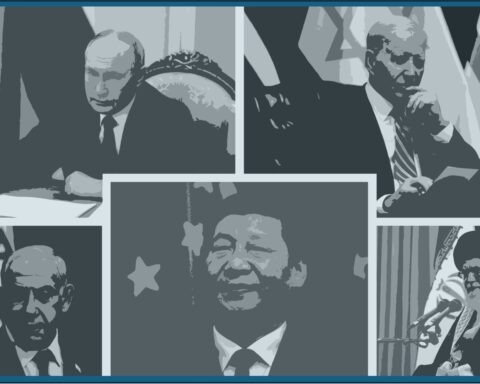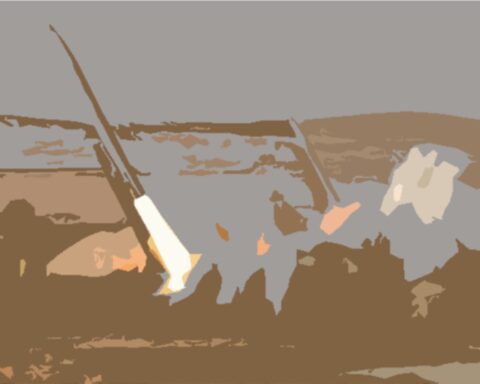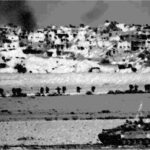Today, we see that alongside states, non-state actors are increasingly prominent on the world stage. Moreover, due to the fact that approaches to these actors are turning into political arguments, there is inevitably a state of instability emerging. Here, we are talking about structures that can be dealt with using quite complex and multiple equations. It’s a very challenging situation. Now, let’s examine this topic and try to clarify it a bit.
Within the framework of our topic, there will be concepts such as statehood, non-state actors, legitimacy, and illegitimacy. At the top of the topics I will explore are non-state illegitimate actors. Therefore, as we follow this examination, let’s keep this main theme in mind.
Legitimate actors are essential primarily from the perspective of the international system and democracy. They encompass elements that strengthen and support the entire global system. In fact, they should be encouraged by governments for the sake of stability and development. The key issue here is whether these activities are in accordance with the laws.
Illegitimate actors are a burden and a threat to the international system. They create instability and nurture areas open to exploitation. Governments must take the necessary measures for the well-being of humanity and societies. Inter-governmental cooperation and solidarity are required in taking these measures.
Illegitimate non-state actors are more commonly seen in places where states are weak or lack authority. They have an organization outside of legitimate state structures. Their organization largely requires tools similar to those of states. For example, they may have symbols like a flag, anthem, etc., they have a leader and a governing system, they may have a party formation, they may have a written or unwritten law that is accepted and enforced within their ranks, they have a budget, they can collect taxes or illegal income under that name, they can engage in imports and exports, they use underground products and can serve as intermediaries in their circulation, they may have a paramilitary force, and they may even have a local internal security organization. They may or may not receive external support, but if they do, they can be more effective. The way they become effective varies both internally and externally. Non-state actors remain illegitimate until they completely take control of the country and become legitimate and recognized within the international system.
Below, we will examine some of the problems created by illegitimate non-state actors:
Gray Zone Operations
This involves promoting illegitimacy and exploiting the international system. Countries engaged in power struggles and various actors with different characteristics and goals continually make planned moves in gray areas, areas of influence, or areas of interest.
In simple terms, in the field, you can observe operations and projects such as those who use terrorism, those who engage in proxy wars, and those who use private military contractors in unofficial areas. Let me provide some examples. For instance, in Syria or Libya, a Russian private military contractor group like Wagner could carry out a false-flag operation. In Africa, a group trying to take over the government in a former French colony could be supported, promoting a coup, and initiating efforts to establish a new order.
Private Military Contractors
From ancient times to the present, mercenaries have been known and used by various countries, whether they are democratic or not. However, as long as they are based on legitimate warfare and security contracts, there are no legal issues. But when it comes to exploitation, destabilization, exploitation, gaining advantages, creating lawlessness, senseless killings, terrorism, fueling proxy wars, and serving as instruments of bad policies, private military contractor companies do not have a good track record.
So, let’s put it this way, private military contractors can be legitimate or illegitimate, both inside and outside of states. What needs to be examined are their intentions, objectives, and interests.
Proxy Wars
In recent times, this has been a highly talked-about topic. Especially, Iran’s efforts to expand its influence through proxies in the Middle East are quite clear. Iran’s activities are a cause of instability in the region.
Other states may also use proxies.
Looking at practice, it is possible to consider situations where legitimacy is established through proxies and political arrangements are made on the ground.
Terrorism
Here, it is possible to extensively explain violence, terrorism, Trotskyist forms of terrorism, and political terrorism. On the other hand, it might also be necessary to examine the process that began with the September 11 attacks. But you should already be aware of these issues. In our time, terrorism is used as a tool. Let’s leave it at that.
Describing states as terrorists does not have legitimacy in international law. Legitimacy, depending on the realities on the ground, can be established by designating them as terrorists through exploitation in gray areas. The realities on the ground must be continuously evaluated from a legal perspective by independent organizations; control is necessary. State lists of terrorists, if prepared for political reasons, can lead to some inaccuracies. When looking at political and armed organizations as illegitimate non-state actors, they are essentially instruments used for proxy wars and gray zone objectives.
Nuclear Threats
One should not be surprised that Russia has been threatening the world with nuclear weapons for a long time! The international system is making a great effort to prevent a nuclear war. However, it should also be debated whether countries turning this potentially catastrophic issue into a political argument should be discussed separately.
A new and serious question is this: If Iran acquires nuclear weapons in the near future, what could the world face? While struggling to solve the complex issues in the Middle East today, the introduction of weapons of mass destruction would not make it an easy equation for us.
Here, while mentioning terrorism, I also want to touch upon a significant threat, which is nuclear terrorism. In a world that is increasingly fragmented, can the full control of illegitimate non-state actors on the global stage be ensured? Can innocent people be confident in this situation? Officials should discuss an unwanted scenario: if non-state actors who are believed to be controllable today, such as terrorists, were to gain power, for example, nuclear power, would there be a solution?
Civil Wars
Let’s take the Middle East and North Africa as an example. With the Arab Spring process, there are significant instabilities in countries such as Yemen, Libya, and Syria today. Once a country that challenged Israel, Syria is now in the midst of a civil war and on the brink of division. Libya, which was once a major player in the global oil market, is in a similar situation. Yemen, which highlights the Red Sea and the Gulf of Aden region, is in the midst of a regional war, involving Gulf countries including Saudi Arabia. These groups occasionally attack each other. This region has geopolitics where fluctuations in international transportation and oil prices can be observed. The main starting point for the current situation we are facing in this region is the civil wars that began with the Arab Spring. In this case, the civil wars in the region produce proxies, terrorism, and instability within themselves.
In the Middle East, civil war has been most effective in countries that are currently in a state of decay, such as Libya, Yemen, and Syria. Lebanon has also been added to this list. Let’s pay attention, these are all countries in a dire state; however, they are in a legitimate state. Therefore, they can be exploited in various ways from the perspective of legitimacy, but they also serve as a field for the planning and design of illegitimate activities by certain segments. Even when things could potentially improve in these areas, they remain a gray area and an area of interest for various (legitimate) countries and powers with political objectives. So, what are the tools to be used? According to the plan, legitimate and sometimes illegitimate non-state actors are deployed in the field.
Exploitation Policy
When it comes to exploitation policies, for example, populism, which is presented within democratic legitimacy but is actually imposed through repressive policies, can create an illegitimate situation. Here, democracy is exploited, and populism is the driving force that transforms the situation. Illegitimate non-state actors are present in almost every field. Taking advantage of the vulnerabilities of the legitimate system, ignoring some wrongdoings with populist policies, handing over the functioning of the state’s core structures to the control of an interest group, actually conceding authority from public authorities, undermining the foundations of the rule of law, attempting to divide society, baseless allegations of wrongdoing, manipulation of the media as a tool of suppression, profiling of the public, unauthorized transfer of certain confidential state information abroad, and more. For example; the guilty are portrayed as innocent, and the innocent are made guilty. But democracy is believed to exist in the country. Political parties, NGOs, and so on, they all exist. Even new ones can be introduced systematically. The bombardment of artificial democracy platforms disrupts public perception and the fabric of the system, just like cancer. The media can be largely taken over. This is the management of perception. Neutral news or informative reporting disappears, and a distorted political agenda is initiated.
I also remember the case of Saudi journalist Jamal Khashoggi. There is no one who has not examined the Khashoggi murder, which took place in the Consulate General building in Istanbul with the involvement of a hit team sent by the Saudi Arabian state. Even the then-CIA Director visited Istanbul and prepared a report on the matter. The situation was clear! Did this blatant murder find sufficient accountability in international relations and law, or will it be left to public conscience to decide? Look at what legitimate actors do!…
Political Parties
The most challenging issue is political parties! A party is an organization, and an organization is a party. A party makes politics, has a cause, ideology, and purpose. Essentially, a party is the basic political organization for popular governance, and it is absolutely necessary. From the perspective of intra-state systems and legitimacy, the state’s constitution and legal framework are fully in place. Public will, elections, and so on are important in political decisions and evaluations. We even emphasize this when we talk about democracy. So, how can this be exploited?
Where is the area where proxy organizations, terrorist organizations, those connected to them, those causing instability, separatists, those who appear legitimate but engage in deception operate? This is done through political parties again. Doesn’t it seem like a deception? In this case, some parties are within the state and legitimate, while others are outside the state and illegitimate!
Most terrorist organizations aim to be represented by a political party. If the goal is to use terrorism to destabilize and divide the region, then everything and everyone related, whether legitimate or illegitimate, within or outside the state, becomes an apparatus and a threat.
Today, there are populist parties and leaders in different countries. For example, it is written that Putin is an example of a populist leader in Russia. After all, public will is a widely discussed issue, but if there is going to be exploitation, there is an aspect that is measured by how the existing power is used by whom and in what way.
Invitation from Instability to Legitimacy
The Middle East and Africa, which have become or have been made unstable through terrorism and proxies, are becoming more manageable, and these interventions are creating a legitimate response from legitimate countries and organizations. Today, warships from the US and the UK are in the Middle East region. On the other hand, coalitions are being formed due to Iraq, Syria, and Yemen, and legitimate military operations are being conducted. There are even operations carried out without the need for a coalition. Retaliatory operations are conducted with the authority provided by the United Nations Charter.
What should be happening here? Fighting the flies or drying the swamp? Can’t legitimate actors use their power and experience to work towards ending civil wars? If this simple approach is not realized, then we must say that there is a hidden interaction between legitimacy and illegitimacy. However, the difficulty lies here. Because the power struggle affects the field so quickly and indirectly that you may not be able to make progress in known basic issues.
Intelligence Operations
Intelligence organizations that provide services within the framework of legitimacy, especially intelligence organizations with high operational capabilities, systematically and covertly carry out long, medium, and short-term operations, which can be considered as preparing the field, for the sake of seizing their own country’s political objectives. It is thought in this way: Everything happened naturally in its environment!..
Dominant intelligence agencies utilize every aspect, whether legitimate or illegitimate, domestic or foreign, for the national objectives. The working method of intelligence agencies is defined based on the principle of secrecy. Even if an organization’s actions are exposed, at this point, one must consider why it decided to disclose this information and what its purpose was. In essence, intelligence agencies leave no trace behind. As a result, you can make educated guesses, but you cannot find concrete evidence. Moreover, you cannot activate legitimate grounds. Intelligence organizations operate on principles of denial, concealment, and cover-up. You can see various aspects of the situation and its consequences. However, since it is ultimately denied, you cannot progress further. This situation leads to another scenario: you respond with similar moves, perhaps even more. This is called an Intelligence War.
Conclusion
Here, we have briefly explained various illegitimate activities, policies, plans, and operations, including terrorism, proxy wars, civil wars, gray zone operations, those who serve interests, intelligence wars, and the narrowing of the political arena with anti-democratic methods that are complex, intertwined, and in some cases, involve the exploitation of innocent people. All of these were there yesterday, and it seems they will continue to exist tomorrow.
Let’s clarify the situation on stage once again; it is very important to see or determine the veil between legitimacy and illegitimacy. Both you and I are actors in this world, just like states, governments, leaders, companies, and so on. Politics is a human ability, function, and feature. Staying within legitimacy is very important. People want to live in stability, peace, and prosperity, to develop, and to raise their children in prosperity and security. But you have noticed that the law is very important in every respect.
Today, a great power struggle is taking place over regions that have become or have been made unstable, especially in the Middle East. Unfortunately, ethnic and religious divisions and hostilities are also added to this. However, when we talk about ethnicity and religion, you are aware that we are talking about a very fundamental issue that inherently includes expressions of brotherhood and peace, isn’t that so? Deepening profit by othering, initiating crises and then resolving them, and policies sustained by these methods, what do they bring to humanity in this era? We see it all with our own eyes; innocent people, children die every day, they are killed.
Why would something legitimate claim to be illegitimate? I think the answer is clear!
